Paying our Last Respects to Nikita Struve (video)
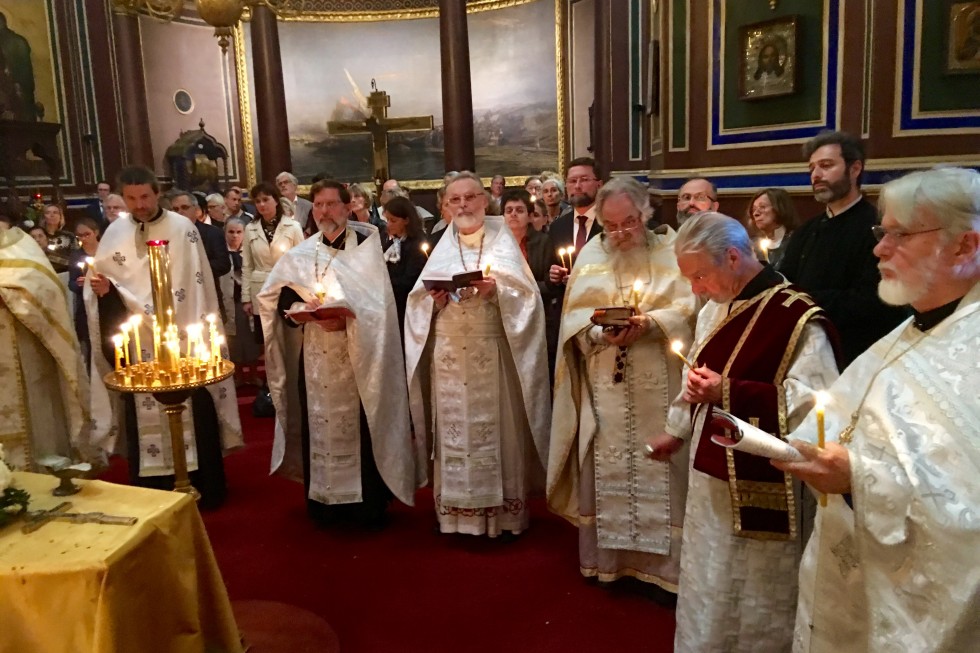
Funeral Service at the St. Alexander Nevsky Cathedral on the Rue Daru
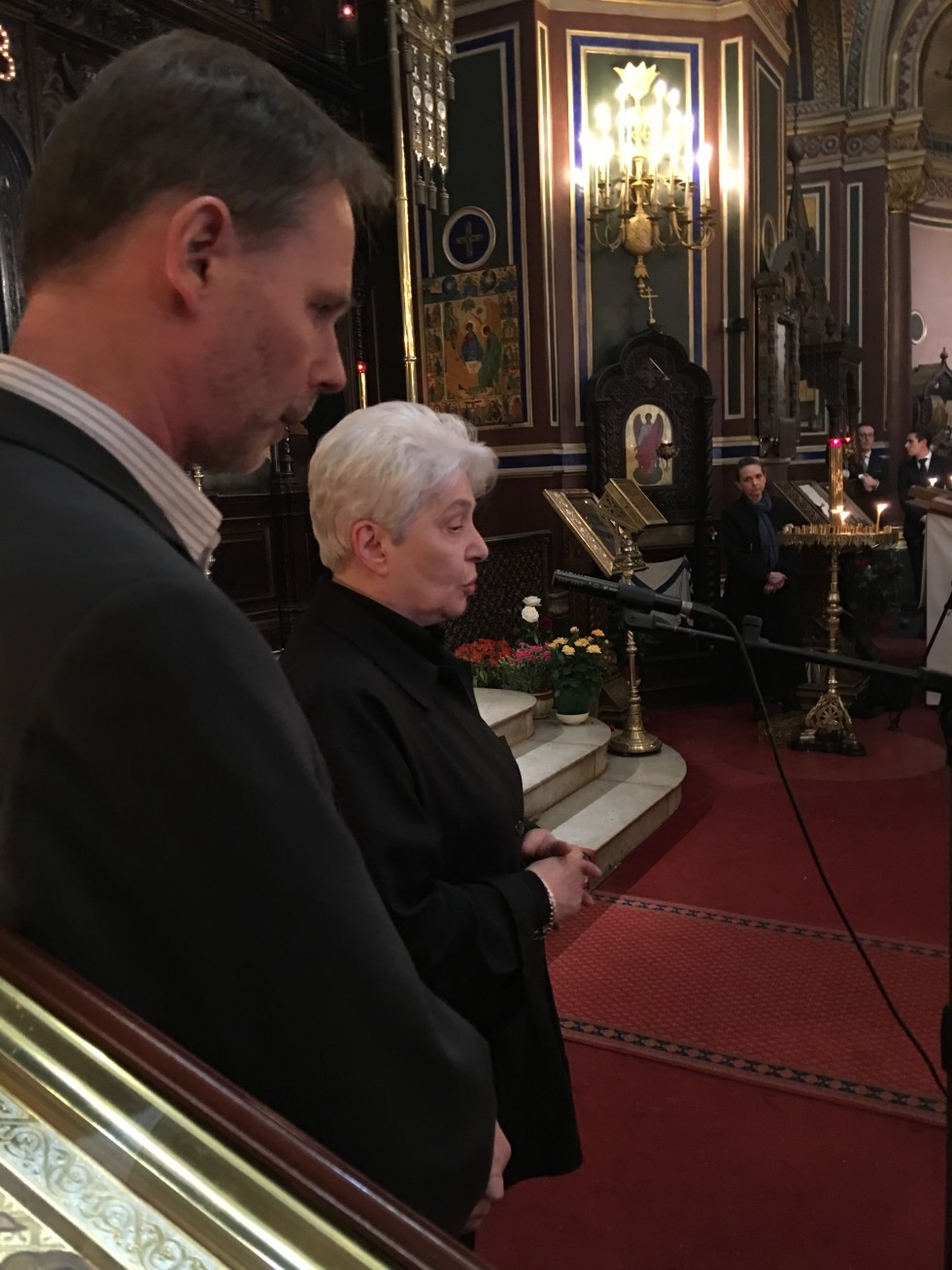
Natalya Solzhenitsyn, Daniel Struve (in the foreground)
Natalia Solzhenitsyn: My dear friends… Over all the years of our exile, there was no one closer to Alexander Isayevich and me than Nikita Struve. Our long-distance acquaintance with Nikita began fifty years ago, when a small stream of books from the Russian émigré community started trickling into our homeland. We greedily consumed these books, most of which were available through the journal ‘Le Messager’, which was published by him. My husband and he became personally acquainted on the third day after my husband’s arrival here. Alexander Isayevich wrote: “Immediately Nikita and I welcomed each other warmly. From the outset we were so close that it was easy to understand each other no matter what we were discussing, even though he has spent his whole life in the emigration, whereas I have spent my whole life as a Soviet man.”
Nikita warned us of the hardship – even the tragedy – of the emigrant life. He used to say that the life of an emigrant is the most difficult of all arts. You are consumed by the absence of your own environment. A fatherland is not only land and history, but perhaps, above all, the feeling that there is someone standing right there beside you. At the same time, there was unprecedented freedom in the emigration. An emigrant from birth, Nikita was a citizen of the world. He was noble, selfless and generous. Nikita had a keen look and a strong and deep mind. He was intellectually free and honest. The very way he interacted with others was prepossessing; he was completely devoid of pathos, ironic and sincere. I would venture that many people will find it harder, colder and more bitter to live without Nikita. But he lived a life of remarkable integrity and passed away during Bright Week, when heaven is wide open. I believe with all my heart… I know that the Lord will give him eternal rest and peace in blessed repose.
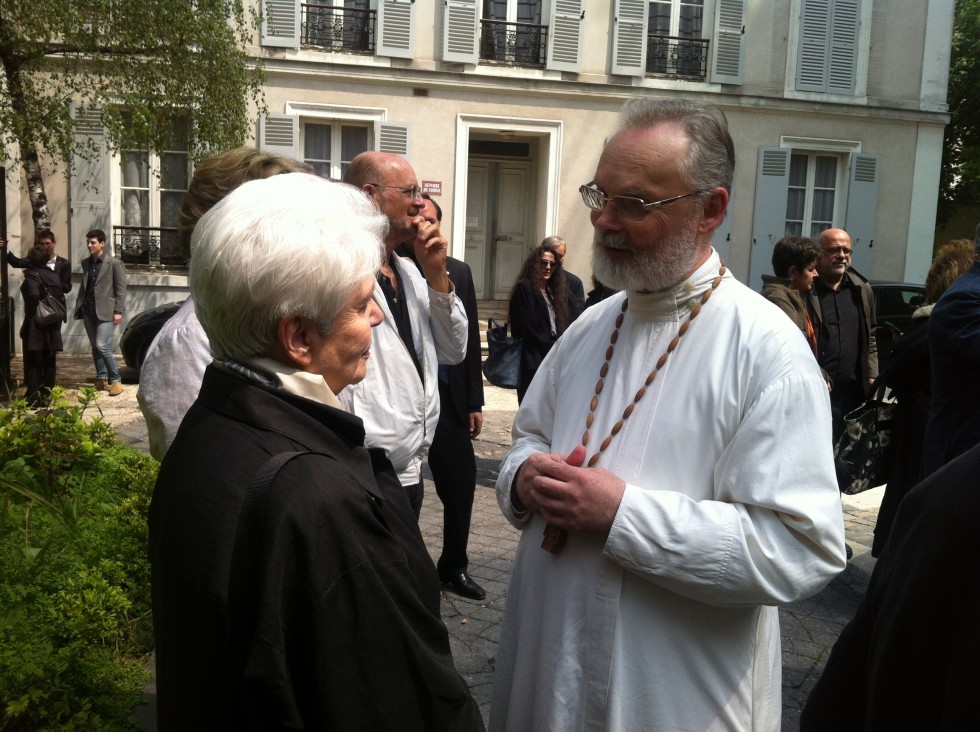
Natalia Solzhenitsyn and Fr. Georgy Kochetkov
Fr. Georgy Kochetkov: Christ is risen!
Your Eminence, dear fathers, brothers and sisters! From our perspective, such a distance away in Moscow, it is difficult to speak about our newly-departed brother Nikita, because so much has already been said and written and I would like not to be repetitive, but rather to say only what is fitting at a funeral.
Upon this occasion, I specifically recall one phrase he coined that made a serious impression on me. The setting was Moscow, in a context of great responsibility. Nikita Alexeyevich was deeply interested in the destiny of Russia and her culture, and in the future of the living. He had high regard for laws and for the standards of church life. But, importantly, he also understood that in addition to these guidelines – which have been valid for centuries and are appreciated by the Church, and with which he aligned himself – there is also another law of Christian life, which he dubbed that day ‘the law of truth and conscience.’ Culture itself, which Nikita Alexeyevich served so selflessly, is in his view a testimony of truth and conscience. He also believed that the church must always follow this law of truth and conscience under any circumstances – even the most difficult external or internal circumstances.
This is what I now wish to recall more than anything, because in these bright Easter days we believe that the Church will be restored and will live not only in the fullness of its canonical being, but also in the fullness of the law of truth and conscience.
It is precisely such a life and culture that can truly revive and raise up the human being to the glory of Christ, always preventing him from becoming disheartened or from wandering from the path of righteousness.
Eternal memory to our newly-departed brother, Nikita!
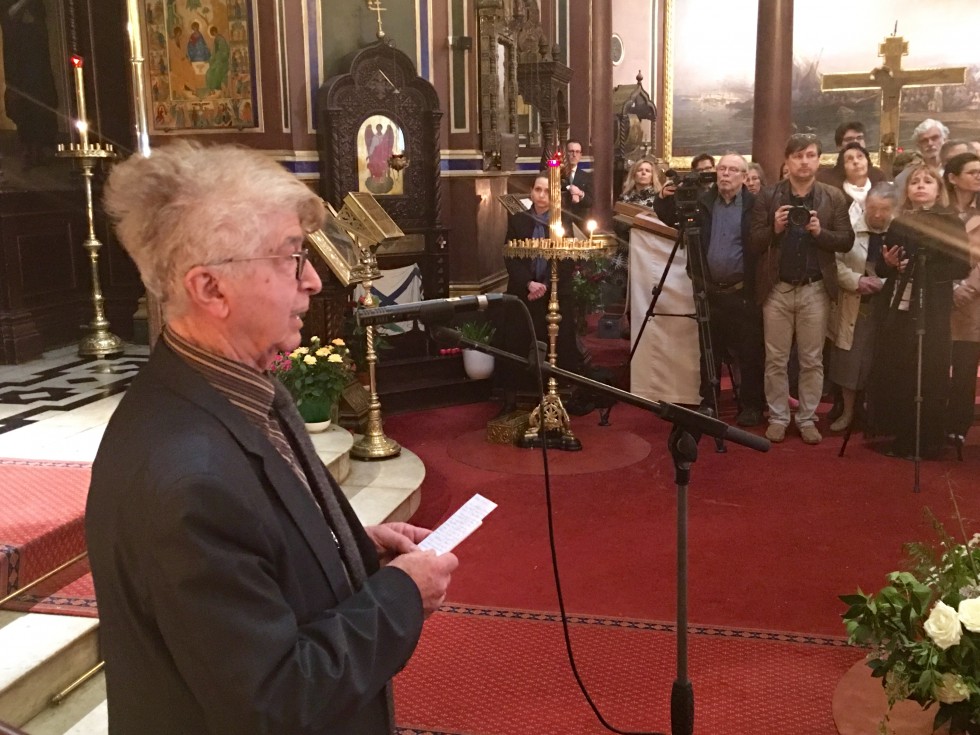
Georges Nivat
Georges Nivat: Dear friends! Not only Nikita Struve’s family, but also his students, colleagues, readers, admirers and friends are mourning today. Yet we also rejoice today, because Nikita was a person who bore fruit of his rich intellectual, spiritual – and simply human – life.
He was French by birth and by education. I think I was one of his first students at the Sorbonne in Paris, in 1958. We were reading and commenting on Krylov’s Fables. At that time, Nikita became an assistant to our common teacher, Pierre Pascal. Nikita was four years older than me, and we became friends. Pierre Pascal was our lifelong maitre: he was a French person of classical culture who had fallen in love with Russia. He was a mentor to Nikita, to me and to a whole generation of French-speaking Slavicists. Nikita wrote his doctoral thesis on the poet Osip Mandelstam, who was little-known at the time; he also published the memoires of the poet-martyr’s widow. The book is written in line with the academic canon, but also manages to be lively and insightful, presenting the poet as almost a Christian. So also, Struve’s interpretation of late Mandelstam, especially his poem ‘The Last Supper’ (‘Supper sky fell in love with a bulwark’). Struve’s exegesis itself looks like falling in love with the wall of the convent in Milan where one can see the remains of Leonardo’s fresco painting. “Truly, this man is a light in the darkness,” wrote Fr. Alexander Schmemann, after reading this text.
Struve was a master of literary style who wrote in beautiful French. His translations, published in the bilingual ‘Anthology of Russian Poetry,’ are very distinguished and refined. Tyutchev, Blok, Akhmatova – straight across the language barrier.
His book Christians in the Soviet Union (1963) revealed the Catacomb Church to a wide French readership and was highly acclaimed by the famous Catholic novelist, François Mauriac.
But, of course, this French intellectual was also Russian. His family, his ancestors and his education in the Orthodox faith all made him a ‘bridge person’ between the two poetries, cultures and branches of Christianity. In the Journals of Fr Alexander Schmemann, he often led discussions on poetry, both French and Russian. With the participation of Sergey Averintsev and many other courageous and enlightened ‘Russian Europeans’, much was written in the pages of the Russian Christian Movement publication ‘Le Messager’. The journal introduced Blaise Pascal and the great poet Charles Péguy to a Russian-speaking audience. Péguy is the author of a epic sacral poem on the scale of Dante, but was killed in the slaughter of the First World War.
As the editor-in-chief at ‘Le Messager,’ for decades he restored to life and published works of forgotten poets and novelists, such as Mother Maria Skobtsova and Andrey Platonov. Long before Perestroika, Nikita discovered new poets such as Olga Sedakova. His work revived philosophical, historical, and theological debate. His journal ‘Le Messager’ will remain as a great monument, like Herzen’s ‘Kolokol’ (‘The Bell’) or Maximov’s ‘Continent.’ Nikita also founded the French edition of ‘Le Messager’, which became a bridge of understanding and hope.
Nikita Alekseevich translated several of Charles Péguy’s poems and, in particular, some fragments from ‘The Five Prayers in the Chartres Cathedral.’ If you please, I will read out his translation. It is marvelous.
Мы не просим Тебя, чтоб душу заблудшую
На путь счастья поставили вновь,
Нам довлеет, царица, что мы честь соблюли.
Не хотим мы, чтоб помощь из жалости
Возвратила нас вновь на счастья стезю,
Не хотим мы того, чтоб любовь покупная
Возвратила нас вновь на стезю послушанья,
О владычица нашей строптивой души.
Владычица моря и гавани знатной,
Мы просим всего лишь в смиренных словах
Сохранить, о царица, под твоими наказами,
Верность, что смерти сильней.
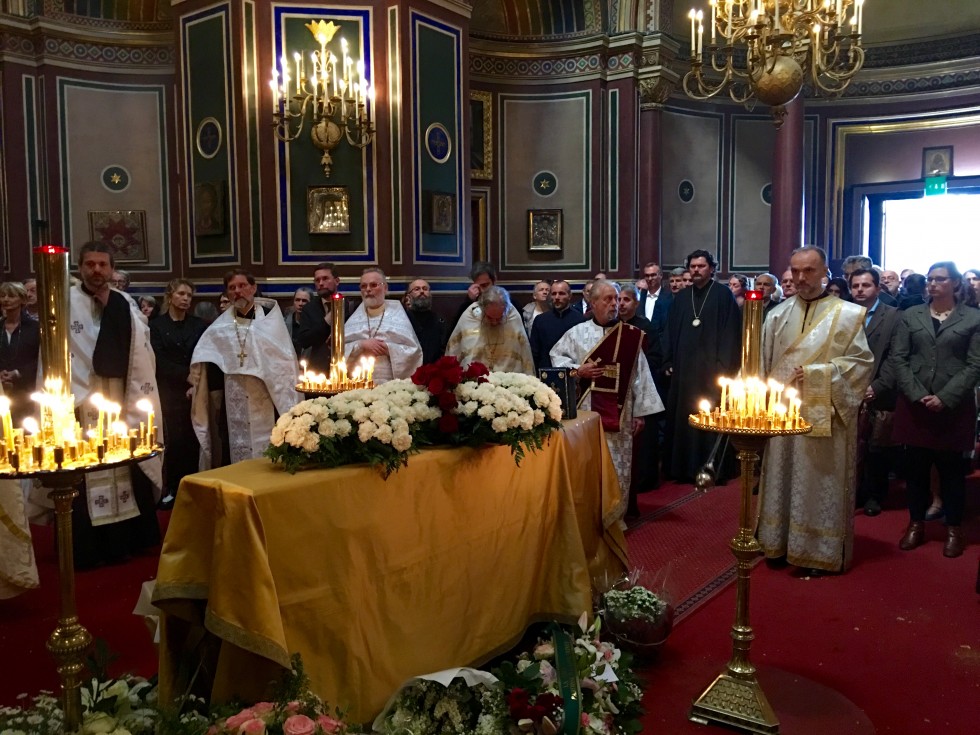
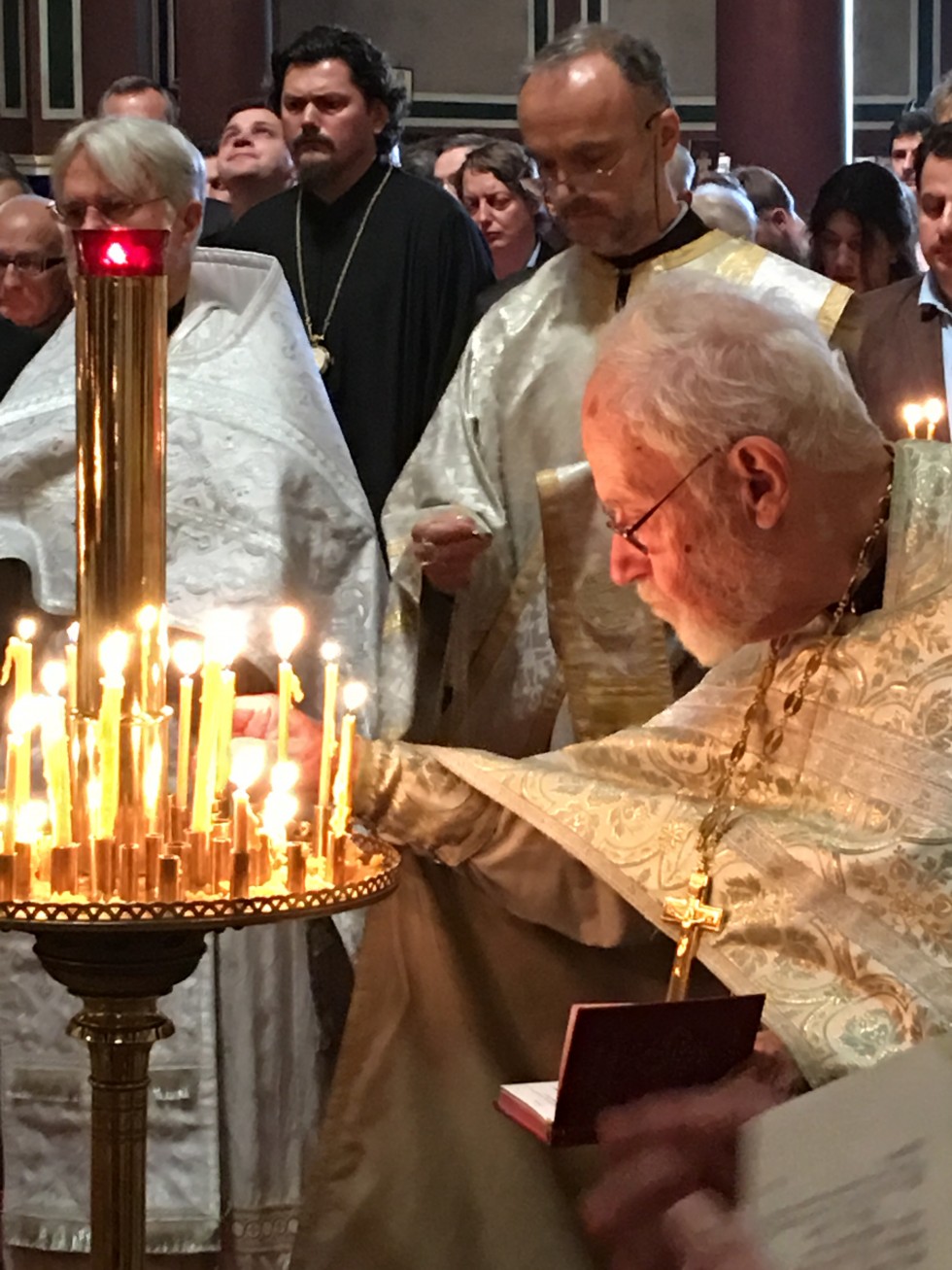
Archpriest Mikhail Evdokimov
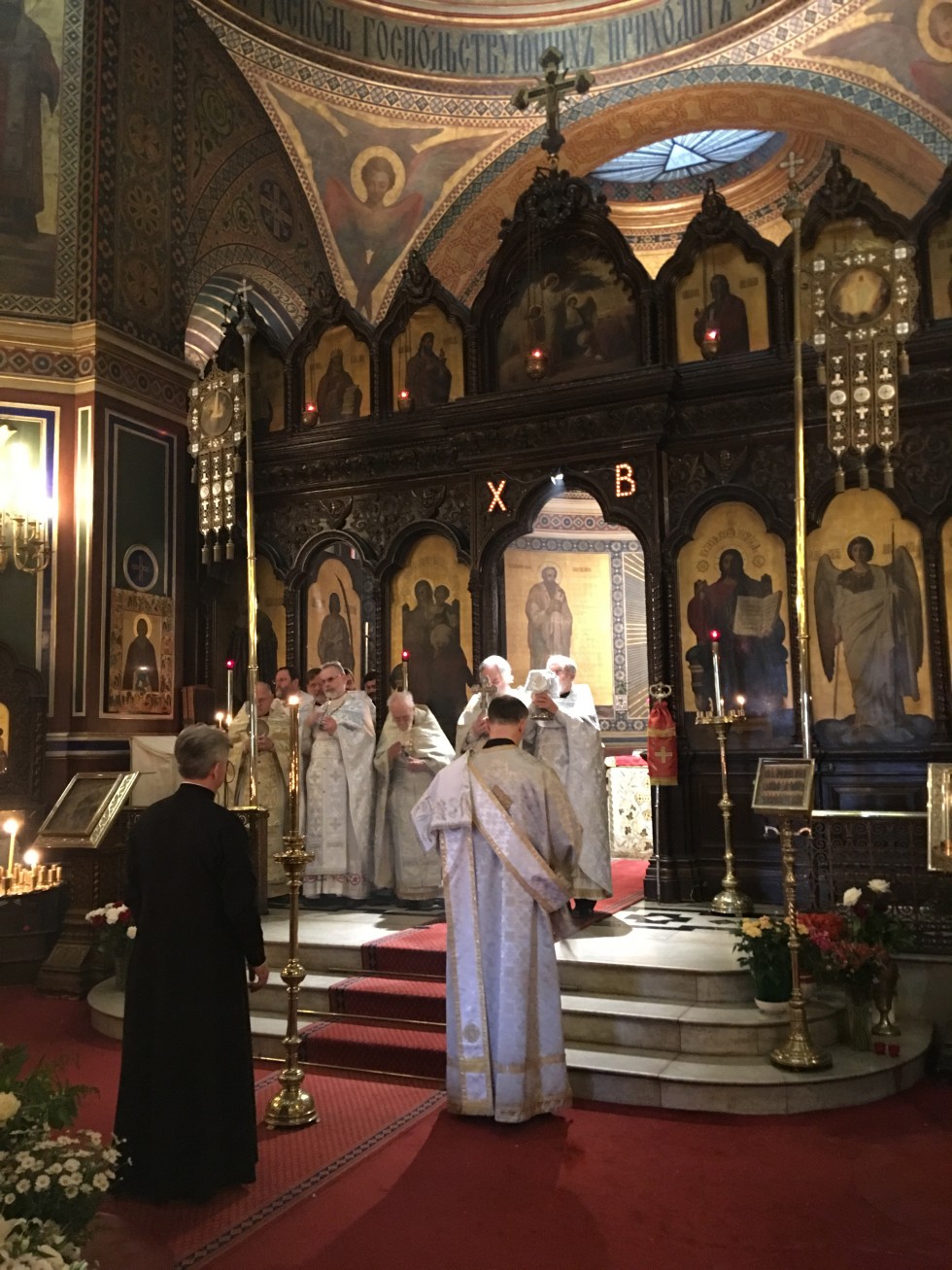
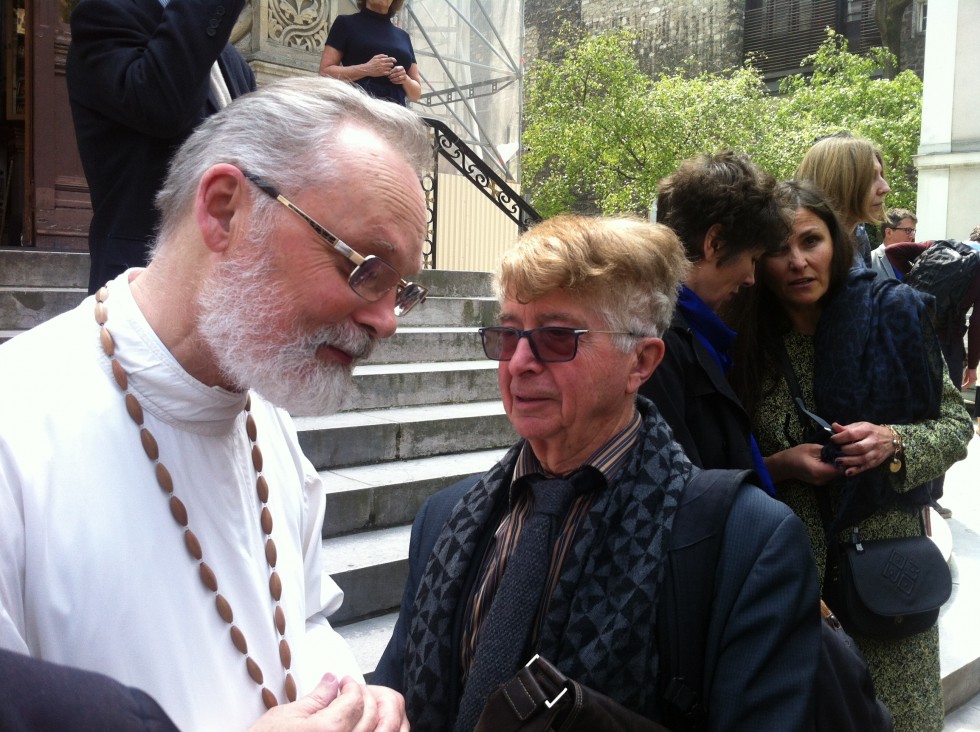
Fr. Georgy Kochetkov, Georges Nivat
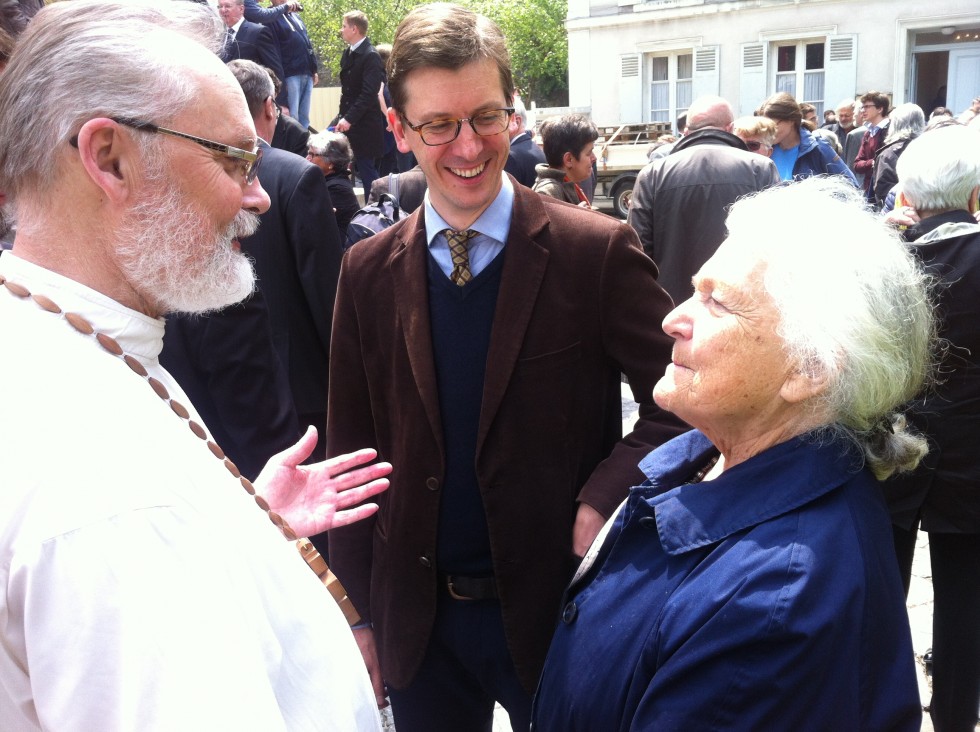
Fr. Georgy Kochetkov, Kirill Sologub, Monique Clément (widow of Olivier Clément)
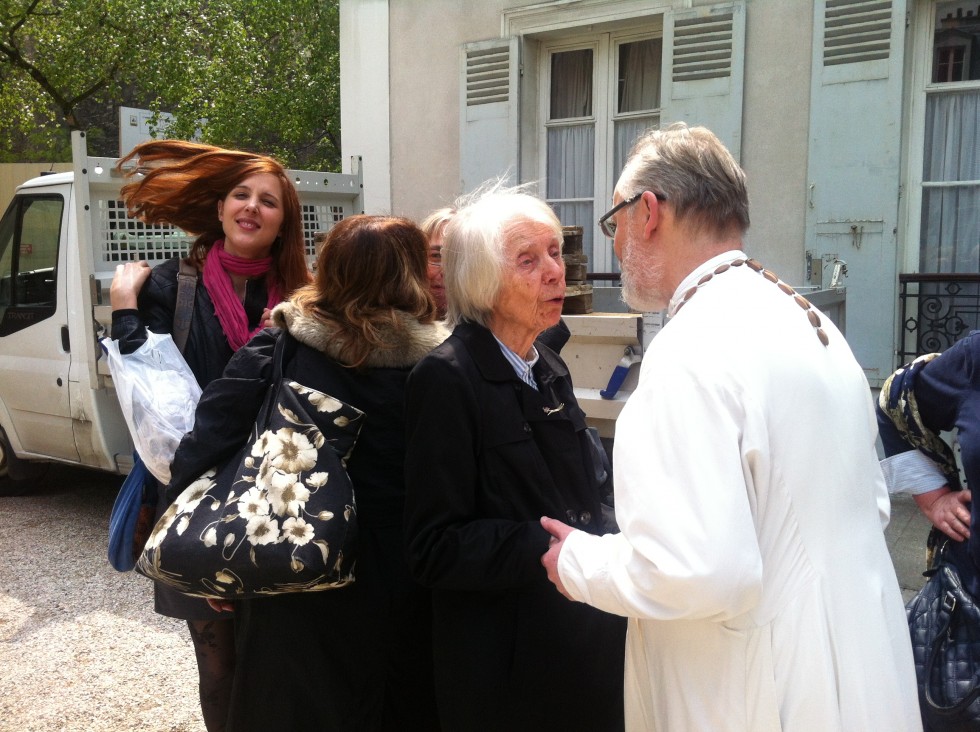
Maria Elchaninova-Struve
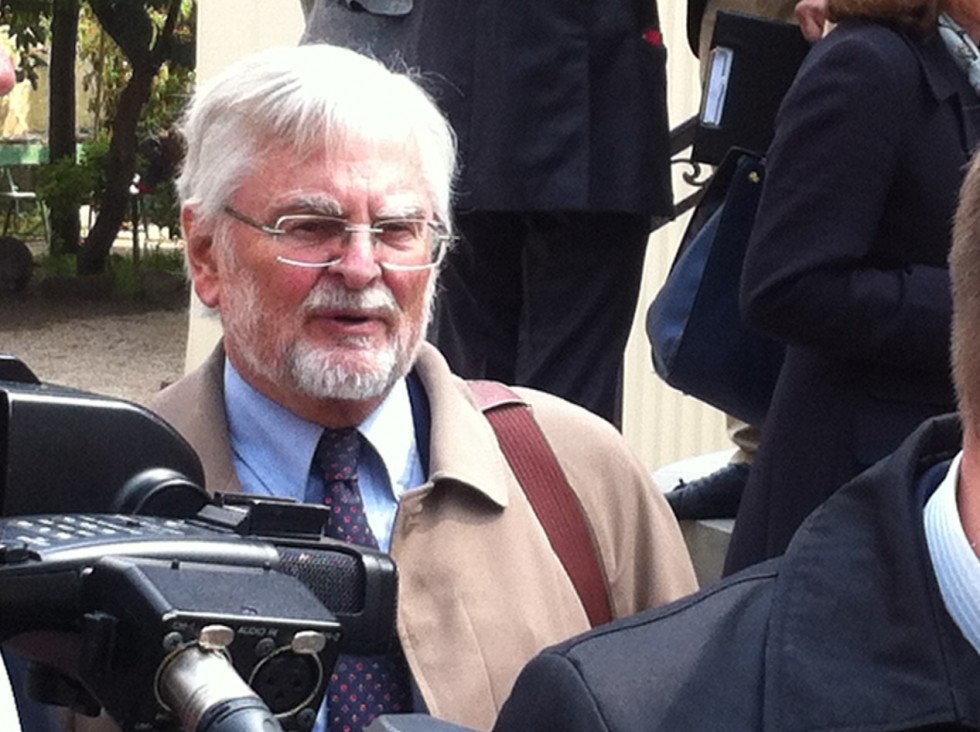
Sergey Schmemann
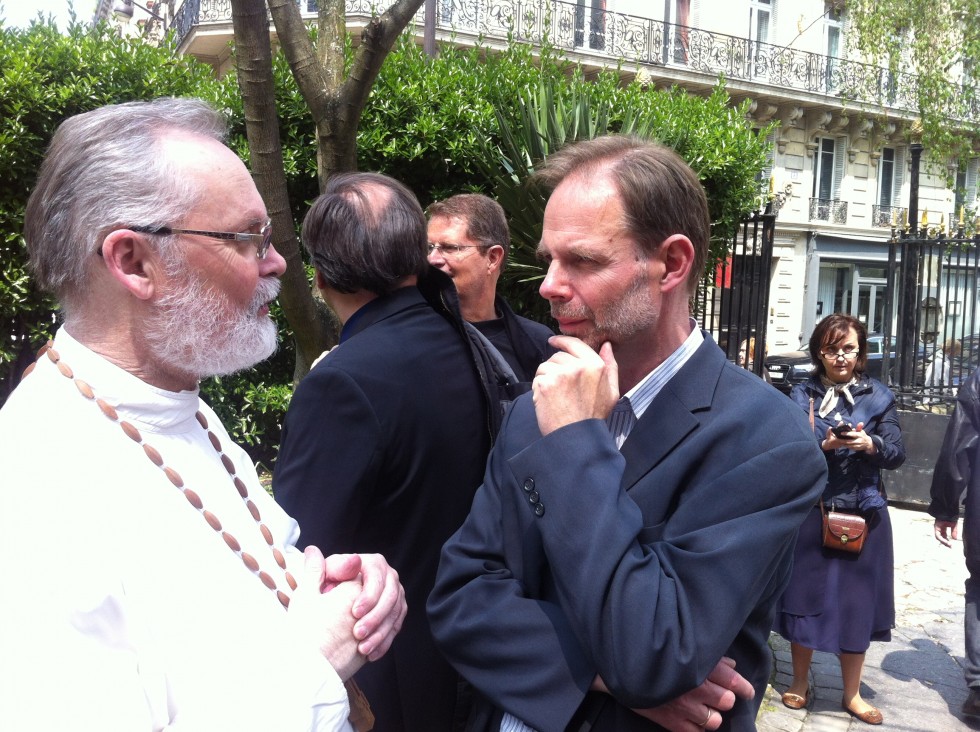
Fr. Georgy Kochetkov, Daniel Struve

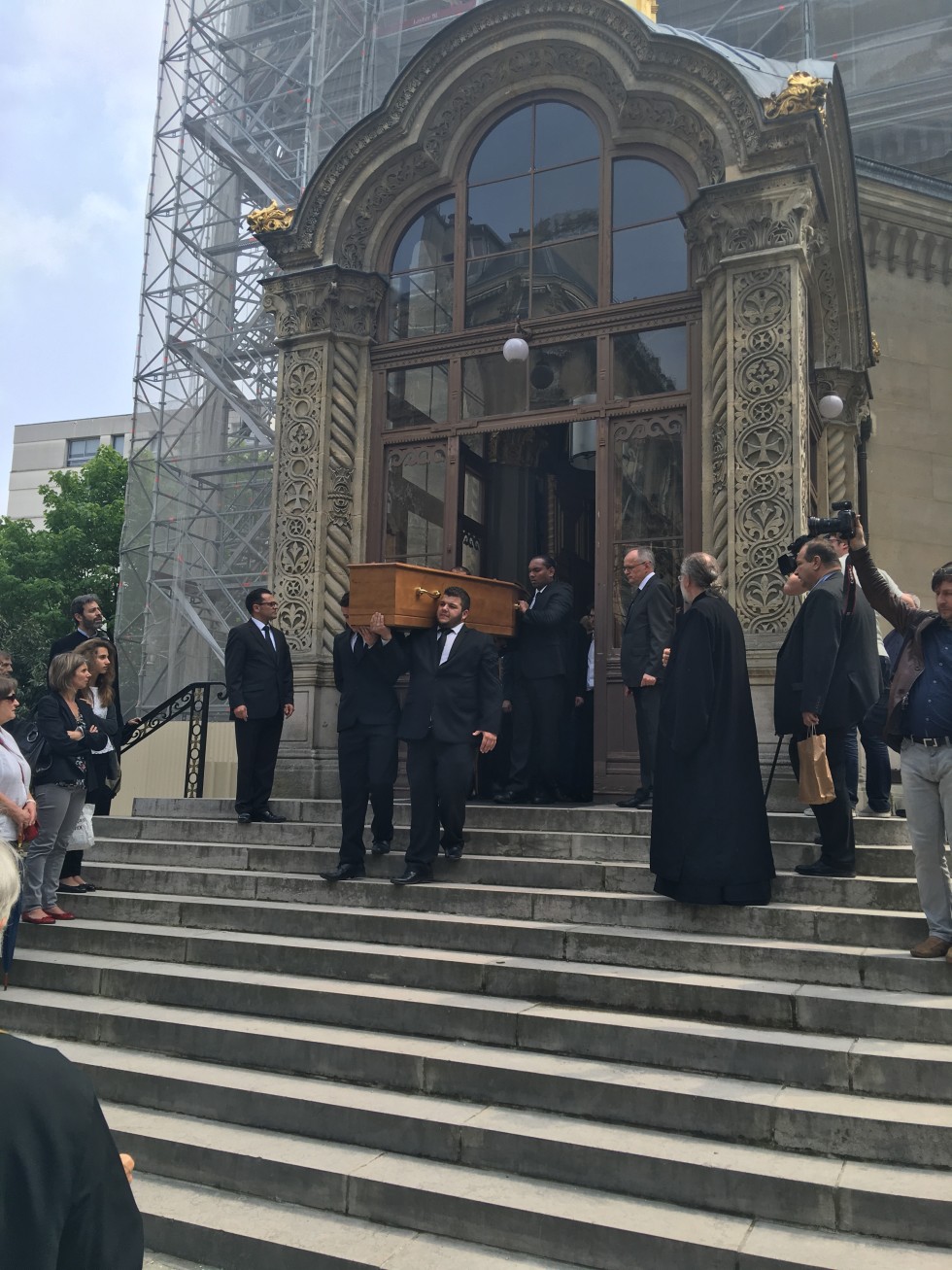
Interview with Nikita Struve during one of his visits to Moscow (by Anna Aliyeva, 2011)
